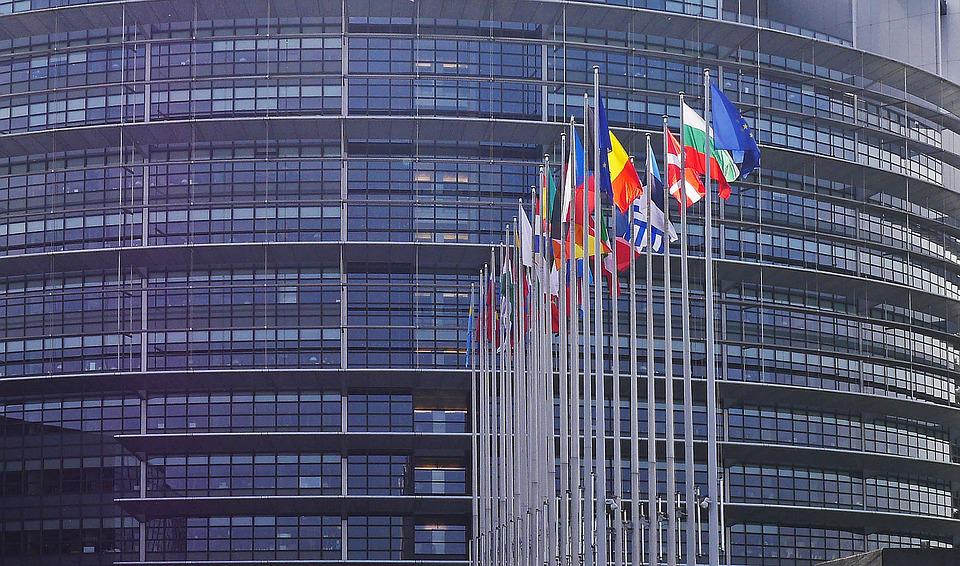The European Union and the ASEAN regional grouping of countries are set to hold their first full summit this year. The first full summit also comes at a time when security is emerging as a leading global issue.
According to officials, Reuters reports that the European Union and the Association of Southeast Asian Nations are set to hold their first full-fledged conference this year. The first major summit between the two blocs appears to be a sign that the two regional groupings are looking to strengthen ties in the midst of concerns over China and Russia.
The summit has yet to be formally announced but will be taking place in Brussels on December 14. An EU official described the summit as a sign of “increasingly close relations in the current geopolitical context.”
The upcoming summit between the 27-member European Union and the 10-member ASEAN bloc is the first full-fledged gathering, as previous meetings between the two blocs were only held between the countries holding the temporary presidency of the groupings.
According to another EU official, the bloc is also looking to further engage with the region amidst concerns about the growing influence of China and the impact of Beijing’s tensions with Washington. Another EU official also confirmed that security issues would be on the agenda as Brussels is looking for a clearer position from the ASEAN countries over Russia’s invasion of Ukraine.
This comes as, according to some diplomats, some EU countries, mostly from eastern Europe, are looking for assurances from the ASEAN countries that they would not help Moscow evade sanctions and clear references to Russia’s “aggression” over Ukraine.
Meanwhile, German Chancellor Olaf Scholz said the bloc could not afford to keep national vetoes on foreign policy if it wants to maintain a leading role in world politics.
In a piece for German news outlet Frankfurter Aligemeine Sunday, Scholz said the war Russia is waging on Ukraine reiterates the importance of unity in Europe and increases the pressure to end “selfish blockades” of European decisions by its member states.
“We simply can no longer afford national vetoes, for example in foreign policy, if we want to continue to be heard in a world of competing great powers,” said Scholz.
Scholz has come under fire from Ukraine and other allies in the West for not taking a leadership role in the current conflict.



 Australian PM Calls Alleged Western Australia Terror Plot “Deeply Shocking” After Arrest
Australian PM Calls Alleged Western Australia Terror Plot “Deeply Shocking” After Arrest  Germany and China Reaffirm Open Trade and Strategic Partnership in Landmark Beijing Visit
Germany and China Reaffirm Open Trade and Strategic Partnership in Landmark Beijing Visit  Pentagon Leaders Monitor U.S. Iran Operation from Mar-a-Lago
Pentagon Leaders Monitor U.S. Iran Operation from Mar-a-Lago  ICE Hiring Surge Raises Vetting Concerns Amid Rapid Expansion
ICE Hiring Surge Raises Vetting Concerns Amid Rapid Expansion  Israel Launches Fresh Strikes on Iran After Death of Supreme Leader Ayatollah Khamenei
Israel Launches Fresh Strikes on Iran After Death of Supreme Leader Ayatollah Khamenei  Netanyahu Suggests Iran’s Supreme Leader Khamenei May Have Been Killed in Israeli-U.S. Strikes
Netanyahu Suggests Iran’s Supreme Leader Khamenei May Have Been Killed in Israeli-U.S. Strikes  Trump Media Weighs Truth Social Spin-Off Amid $6B Fusion Energy Pivot
Trump Media Weighs Truth Social Spin-Off Amid $6B Fusion Energy Pivot  Iran Supreme Leader Ayatollah Ali Khamenei Killed in Israeli, U.S. Strikes: Reuters
Iran Supreme Leader Ayatollah Ali Khamenei Killed in Israeli, U.S. Strikes: Reuters  Venezuela Oil Exports to Reach $2 Billion Under U.S.-Led Supply Agreement
Venezuela Oil Exports to Reach $2 Billion Under U.S.-Led Supply Agreement  Macron Urges Emergency UN Security Council Meeting as US-Israel Strikes on Iran Escalate Middle East Tensions
Macron Urges Emergency UN Security Council Meeting as US-Israel Strikes on Iran Escalate Middle East Tensions  Dominican Republic Unveils Massive Rare Earth Deposits to Boost High-Tech and Energy Sectors
Dominican Republic Unveils Massive Rare Earth Deposits to Boost High-Tech and Energy Sectors  USITC to Review Impact of Revoking China’s PNTR Status, Potentially Raising Tariffs on Chinese Imports
USITC to Review Impact of Revoking China’s PNTR Status, Potentially Raising Tariffs on Chinese Imports  Philippines, U.S., and Japan Conduct Joint Naval Drills in South China Sea to Boost Maritime Security
Philippines, U.S., and Japan Conduct Joint Naval Drills in South China Sea to Boost Maritime Security  U.S.-Israel Strike on Iran Escalates Middle East Conflict, Trump Claims Khamenei Killed
U.S.-Israel Strike on Iran Escalates Middle East Conflict, Trump Claims Khamenei Killed  NYC Mayor Zohran Mamdani Meets President Trump to Tackle Housing Crisis and ICE Detentions
NYC Mayor Zohran Mamdani Meets President Trump to Tackle Housing Crisis and ICE Detentions  Russia Signals Openness to U.S. Security Guarantees for Ukraine at Geneva Peace Talks
Russia Signals Openness to U.S. Security Guarantees for Ukraine at Geneva Peace Talks  Trump Orders Federal Agencies to Halt Use of Anthropic AI Technology
Trump Orders Federal Agencies to Halt Use of Anthropic AI Technology 































